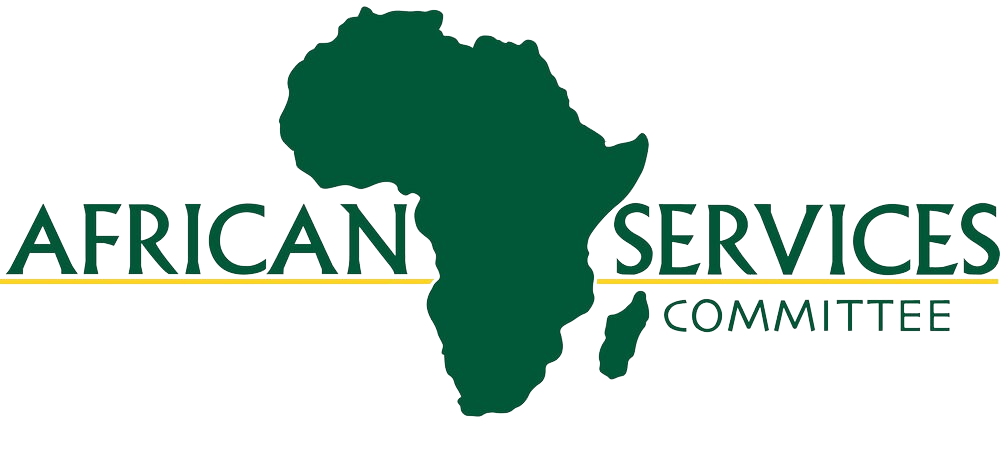Legal
African Services provides free immigration legal services to New Yorkers. Since ASC's founding, our Legal Department has helped people from over 120 countries, including those from Latin America, the Caribbean, and Asia. We provide consultations or direct representation to over 1,000 eligible New Yorkers per year, with assistance offered in English, French, Spanish, Portuguese, Lingala and Wolof. We can offer assistance to eligible individuals for naturalization, green card applications, work permits, TPS and DACA, as well as provide information about many of the changes happening in immigration law and policy.
-
To request legal services, please fill out this form: FORM
PRUCOL
If you need a PRUCOL letter or a Non-PRUCOL letter, please email prucol@africanservices.org or call 212-222-3882 ext. 2180 and leave a message. Your email or voicemail must include your name, your preferred language, and your phone number.Scope of Services
We may be able to accept the following types of cases:
Naturalization (citizenship) for eligible green card holders
Green card applications for eligible individuals with a qualifying family sponsor or with an approved asylum application
Renewals of green cards and work permits (employment authorization documents) for eligible individuals
Temporary Protected Status (TPS) for nationals of certain countries
Deferred Action for Childhood Arrivals (DACA) for eligible renewals only
Petitions for family members abroad (*we can only help you with the first step of this process and only when the petitioner is a U.S. citizen or lawful permanent resident [LPR]*)
Freedom of Information Act (FOIA) requests for your immigration case file
VAWA, U visas, and T visas, subject to capacity
Asylum (Pro se only), subject to capacity
Standby Guardianship
-
Para solicitar servicios legales, por favor complete este formulario: FORMULARIO
PRUCOL
Si necesita una carta de PRUCOL o una carta Non-PRUCOL, envíe un correo electrónico a prucol@africanservices.org o llame al 212-222-3882 ext. 2180. Su correo electrónico o correo de voz debe incluir su nombre, su idioma preferido y su número de teléfono.
Alcance de los serviciosEs posible que podamos aceptar los siguientes tipos de casos:
Naturalización (ciudadanía) para titulares de tarjetas verdes elegibles
Solicitudes de tarjeta verde para personas elegibles con un patrocinador familiar calificado o con una solicitud de asilo aprobada
Renovaciones de tarjetas verdes y permisos de trabajo (documentos de autorización de empleo) para personas elegibles
Estatus de Protección Temporal (TPS) para nacionales de ciertos países
Acción Diferida para los Llegados en la Infancia (DACA) solo para renovaciones elegibles
Peticiones para familiares en el extranjero (*solo podemos ayudarlo con el primer paso de este proceso y solo cuando el peticionario es ciudadano estadounidense o residente permanente legal [LPR]*)
Solicitudes de la Ley de Libertad de Información (FOIA) para su expediente de caso de inmigración
VAWA, visas U y visas T, sujetas a capacidad
Asilo (solo pro se), sujeto a capacidad
Tutela en Espera
-
Pour demander des services juridiques, veuillez remplir ce formulaire: FORMULAIRE
PRUCOL
Si vous avez besoin d'une lettre PRUCOL ou une lettre Non-PRUCOL, veuillez envoyer un e-mail à prucol@africanservices.org ou appeler le 212-222-3882 ext. 2180 et laissez un message. La message doit contenir votre nom, votre langue préférée, et votre numéro de téléphone.La portée des services
Nous pouvons être en mesure d’accepter les types de cas suivants:
Naturalisation (citoyenneté) pour les titulaires de cartes vertes éligibles
Demandes de carte verte pour les personnes éligibles avec un parrain familial éligible ou avec une demande d'asile approuvée
Renouvellements de cartes vertes et de permis de travail (documents d'autorisation de travail) pour les personnes éligibles
Statut de Protection Temporaire (TPS) pour les ressortissants de certains pays
Action différée pour les arrivées d'enfants (DACA) pour les renouvellements éligibles uniquement
Pétitions pour les membres de la famille à l'étranger (*nous ne pouvons vous aider que dans la première étape de ce processus et uniquement lorsque le pétitionnaire est un citoyen américain ou un résident permanent légal [LPR]*)
Demandes en vertu de la loi sur la liberté d'information (FOIA) pour votre dossier d'immigration
VAWA, visas U et visas T, sous réserve de capacité
Asile (pro se uniquement), sous réserve de capacité
Tutelle de Remplacement
-
ASC Immigrant Support Network
Funded by the Mother Cabrini Health Foundation.
Ryan White
Funded by the Federal government of the United States.
Immigrant Opportunity Initiatives (IOI) and Interest on Lawyer Account (IOLA) FundFunded through New York City’s Human Resources Administration and New York State.
WelcomingNYC
Funded by New York State via the New York Immigration Coalition (NYIC).
WelcomeNYC
Funded by New York City Council.
-
Please see below for important legal information.
If you are interested in an internship, pro bono work, or volunteering with our Legal Department, please click here. If you are a legal practitioner who needs to contact us or if you have questions about volunteering, please email legalhotline@africanservices.org. Please note, we cannot reply to requests for legal representation when our intake is closed.
Let ASC help you.
Hours of Operation:
Monday – Friday
9 AM – 5 PM
Phone:
+1 212 222 3882
Email:
info@africanservices.org
Address:
429 West 127th Street
New York, NY 10027 USA


